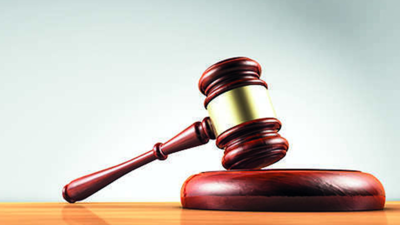- News
- City News
- allahabad News
- Hooch deaths: Allahabad high court says government liable for compensation
Hooch deaths: Allahabad high court says government liable for compensation

The HC observed this while hearing a writ petition filed by Rani Sonkar and 10 others
PRAYAGRAJ: The Allahabad high court has held that the government is accountable for compensation in cases of death due to consumption of spurious liquor and directed the state government and other respondents to file reply in a petition relating to the Azamgarh hooch tragedy in which 10 persons had died, reports Rajesh Kumar Pandey. A division bench granted time of two weeks for filing the reply.
In the order dated August 29, a division bench comprising Justice Surya Prakash Kesarwani and Justice Saurabh Srivastava granted time of two weeks for filing the reply.
"Prima facie, the state government, having complete control and regulation to manufacture and sale of liquor under the UP Excise Act, 1910 and rules framed thereunder, is also liable to pay specified amount to the sufferer or successors of the deceased under the provisions of Mukhya Mantri Kisan Evam Sarvhit Bima Yojna which provides for compensation on account of death or permanent disability due to poison, etc," the high court observed while hearing a writ petition filed by Rani Sonkar and 10 others.
Directing to put up the case on September 19 for the next hearing, the court said that the counter-affidavit (reply) shall be filed on behalf of the state respondents through an officer not below the rank of a secretary.
Of the 11 petitioners, eight are the widows of those who died due to consumption of poisonous country/foreign made liquor purchased from a licenced retail country liquor shop. One petitioner is the son of Rikhraj Nishad, who had died due to consumption of poisonous liquor purchased from the same shop. Another petitioner is the person who had also purchased liquor from the same shop and on consumption lost eye vision.
It is an admitted fact that all the consumers had purchased liquor from the licenced retail shop, sold by the licensees to them as branded liquor.
As per the charge sheet dated August 2, 2021, filed by the state under Section 60 (A) of UP Excise Act and other sections of IPC at Pawai police station of Azamgarh, the licenced vendors and certain other persons were involved in manufacture and sale of poisonous liquor and sold it to a large number of persons, including the husbands/father of the petitioners, resulting in either death or loss of eye vision.
"Thus, the husbands/father of the aforesaid petitioners were sufferers due to consumption of poisonous liquor purchased by them from the licenced shop," the court added.
FOLLOW US ON SOCIAL MEDIA
FacebookTwitterInstagramKOO APPYOUTUBE
Start a Conversation
end of article









